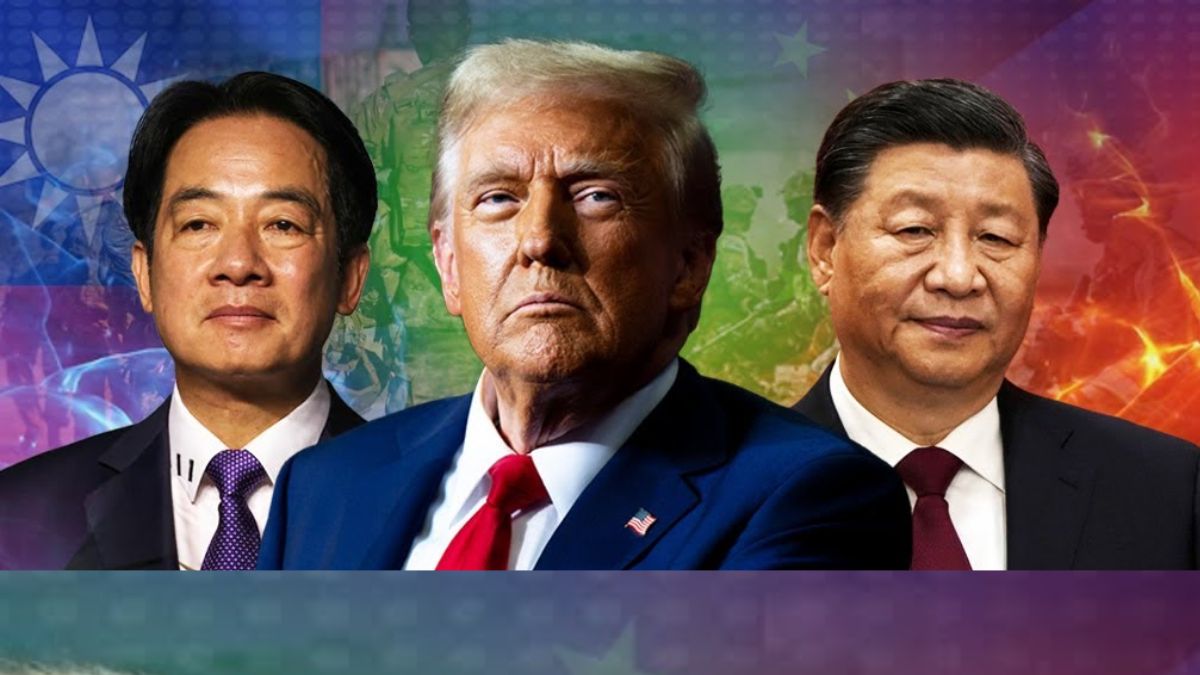Officials in Taiwan had initially welcomed Donald Trump’s re-election, recalling his first term’s pro-Taiwan stance, which included expanded arms sales and high-level contacts with the island.
Coupled with Taiwan’s “silicon shield”, home to the world’s largest semiconductor manufacturer powering US AI industries, Taipei had reason to feel secure. But as the US president’s focus shifts toward a trade deal with China, Taiwanese policymakers are grappling with a central question: what if America reduces its security commitments?
Trump’s recent remarks hinting that Taiwan could be part of broader US-China negotiations, combined with new trade tariffs and delayed arms sales, have unsettled Taipei. Taiwanese officials are now hedging against a scenario in which US security guarantees weaken, while still striving to maintain Washington’s commitment to the island.
Defence spending surge
President Lai Ching-te’s October 10 national-day address underscored this dual strategy. Taipei pledged to raise defence spending to more than 3% of GDP by 2026 and 5% by 2030. Plans also include a new air-defence system, “T-Dome,” supplemented by a special defence budget potentially worth $33 billion, much of which could be allocated to American-sourced military hardware.
Observers note that these measures are as much a signal to Washington as they are to Beijing. This approach is designed to convince the Trump administration that Taiwan is investing substantially in its own defence, offsetting concerns over US disengagement.
Charm offensive and outreach beyond America
Beyond domestic defence signalling, Taiwan has quietly expanded diplomatic and defence outreach beyond the United States. President Lai has sought discreet collaboration with European partners, focusing on drones and asymmetric military capabilities, amid growing European defence spending following the Ukraine crisis.
September’s defence expo in Taipei featured stronger European representation than usual, including Germany and Airbus showcasing tactical drones, while a delegation signed co-operation agreements with Poland and Ukraine on aerial drone manufacturing.
These partnerships, while unlikely to replace U.S. security guarantees, provide Taiwan with technology and expertise to bolster its capabilities. Officials have been deliberately circumspect about these collaborations to avoid provoking China, which maintains longstanding objections to any enhancement of Taiwanese military capabilities.
Impact Shorts
More ShortsPolitical and institutional hurdles at home
Despite these proactive steps, challenges remain. Opposition figures, such as newly elected Kuomintang leader Cheng Li-wun, oppose major increases in defence spending. Critics also note that even full support from Trump and US allies cannot fully substitute for a sustained American security commitment.
Analysts suggest that Taipei’s strategy is thus a delicate balancing act: publicly signalling commitment to self-defence, privately cultivating alternative partners, and maintaining Washington’s attention without alienating China.
Strategic calculus: deterrence through capability and diplomacy
Ultimately, Taiwan’s hope is to keep Beijing convinced that the cost of military aggression outweighs potential gains. By simultaneously boosting military spending and outreach to Europe, Taipei seeks to hedge against US unpredictability while avoiding overt provocations that could trigger escalation.
As the Trump-Xi summit approaches, the island’s strategy reflects a pragmatic assessment: America is indispensable, but a credible Plan B is critical in an era of geopolitical uncertainty.
)